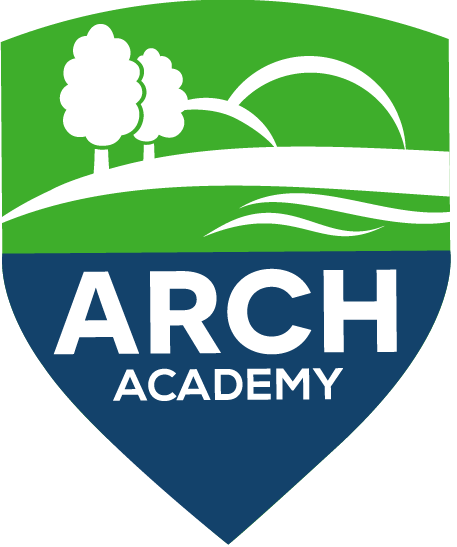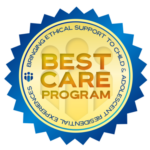our treatment approach
Since ARCH Academy opened its doors, the 12 Steps have laid the foundation for the treatment we provide. It is through both the 12-Step exposure and research-based therapies (CBT, REBT, Family Systems, DBT and more) that the resident has an opportunity to experience a rich and therapeutic treatment.
1. Individual Therapy
ARCH Academy places great emphasis on creating a space for therapy to work specifically with adolescent males. In doing so, evidenced-based traditional approaches are integrated into treatment in order to help the teen heal and grow emotionally, physically and spiritually. During this dedicated time, the young man is expected to push himself. He will be given the opportunity to explore areas of his life and personhood that may have been hidden or received little attention.
2. Group Therapy
At ARCH Academy, one of the most impactful experiences that a resident has is walking through this process with others he can relate to and understand. The communal experience of regular group therapy fosters closeness, safety and transparency.
3. Family Therapy
ARCH Academy approaches the treatment of addiction from a family perspective. Accepting the disease of addiction is a family disease is the first step in the healing, growth and ongoing success of the resident and his family.
4. Experiential Therapy
At ARCH Academy, we understand traditional talk therapy may not reach a young person as much as hands-on activities can. We use engaging activities like equine therapy, ziplining and art therapy to help teens develop a stronger sense of self by coming to terms with buried emotions and past traumas.
CLINICAL PROGRAMMING
ARCH Academy has over 35 years’ experience treating adolescents age 14-17 that struggle with a primary substance abuse problem. It is very common that the substance abusing behavior is accompanied by other contributing co-occurring mental health issues such as anxiety, depression, trauma, ADHD, grief, or family of origin issues; all of which our skilled staff are trained to address. Our therapists create an individualized treatment plan for each teen, focused on cultivating a healthy sense of confidence as well as providing the young man with effective coping strategies and life skills to aid in sustained recovery from substances. Our treatment modality is composed of a 12-step foundation, proven clinical interventions and, experiential and adventure-based therapy.
group milieu
ARCH Academy understands that adolescents experience a great deal of growth within their peer groups and that creating interventions harnessing our resident community is essential to their development. Our residents are assigned a community upon arrival with members a varying lengths of recovery experience, allowing for mentoring and accountability. Creating a peer community nurtures relationship building skills, problem-solving, learning to give and receive support, and confidence that is essential for skills on staying away from substances.
TREATMENT PHASES
The program is an average of six month long and divided into three phases.
Phase One:
Phase One consists of an average 30-45 day length of stay. This phase primarily focuses on getting a clear assessment of the teen through a variety of assessments conducted by the therapist, attending physician, and psychiatric evaluation. During this time, the young man will start detoxing from substances, both physically and mentally. At this time, the treatment team will begin to get a clearer understanding of underlying issues. The young man will be incorporated into therapeutic milieu and begin to understand addiction concepts, identify contributing factors to his use and, understand the negative impact his substance use has had on his life and, his loved ones. Also, during this phase, the family will participate in a family intensive program to better understand the disease of addiction and the way it has manifested in their family unit. As the end of Phase One nears, the treatment team will be in position to assess if ARCH Academy is the appropriate intervention. The young man will either transition to Phase Two or, other pronounced issues may warrant a recommendation to a more appropriate intervention.
Phase Two:
Phase Two of the program is geared towards deepening the therapeutic work identified in Phase One. Phase Two average length of stay is 90-120 days. This stage is progress dependent. At this point, the young man has been clean of substances long enough to start getting more involved in his 12-step work, address the underlying issues identified with his therapist, and diving deeper into family and group therapy. Now that the teen does not have the substance to rely on as a coping skill, they are faced with having to develop and solidify coping skills to assist in: emotional regulation, mental health issues, re-establishing or forming family attachment bonds and, identifying ways in which to be of service to others. The group milieu is essential in providing support as well as an opportunity to navigate peer relationships which often mimic the work needing to be done in the family system. Phase Two presents several challenges for the young man and his family. This phase typically involves many ups and downs along with frustration towards the work and dedication needed to establish sustained recovery. At the later part of this stage, a heavy focus is put on establishing a transition plan as the young man looks to return home or, the next level of care.
Phase Three:
Phase Three is dedicated to the transition period and, honoring the accomplishments of the young man. This phase averages 2-4 weeks. At this stage the young man has established himself as a leader on campus, has developed a solid transition plan for ongoing therapeutic support, clear academic goals and 12-step home recovery plan. The young man will serve as mentor to his peers and demonstrate the skills he has learned throughout his treatment process. He will also apply for program graduation to the leadership team and be acknowledged in a campus ceremony.
SPECIFIC INTERVENTIONS:
- Medical detox (if needed)
- Cognitive behavioral therapy (REBT, DBT)
- Family Systems
- 12-Step group and education
- Experiential Therapy: art therapy, music-assisted therapy, ropes course, spirituality group, mindfulness meditation, equine therapy
- Medication management for co-occurring disorders
- Psychiatric care if needed.
- Daily group therapy
- Individual therapy
- Trauma informed care and treatment (EMDR)
- Treatment progress incentive program
- Community service projects
PSYCHIATRIC SERVICES
Within the first week of admission, the teen will undergo a psychiatric evaluation which will review any prior diagnosis and medications prescribed as well as assess any current co-occurring symptoms. When necessary, ongoing medication management will be a part of the teen’s daily routine. Prior to any medication being prescribed, permission from designated parent or guardian is obtained.
LENGTH OF STAY
The length of our program is directly tied to the progress of the resident and his family. At a minimum, teens are asked to complete our 30-day Primary Care program. During this time, the teen is given the opportunity to stabilize while learning foundational principles that aid in long term recovery. Average length of stay at ARCH Academy is six months. Research shows that the longer one is in treatment, the greater chance of long-term success he has. As a result, many of our residents will make the transition from Primary Care to our Extended Care program based on recommendations by the treatment team.
EXPERIENTIAL THERAPIES
During the resident’s stay, he will be exposed to numerous experiential therapies in order to help him gain further insight into his struggle with substances and underlying issues. Experiential therapy approaches are kinetic and allow for hands on opportunities through symbolism, self-expression, relationship building and role play. These multi-sensory approaches allow greater opportunities to engage the teen in ways that traditional therapy has not. We currently offer art therapy, equine therapy, music assisted therapy, pottery, ropes course zipline, and mindfulness meditation. These therapies will help the teen discover who he is.
Warning Signs
IF YOU ARE ABLE TO ANSWER YES TO SEVERAL OF THE FOLLOWING WARNING SIGNS, IT IS LIKELY THAT YOUR SON NEEDS PROFESSIONAL HELP.
- Does he say that he needs help or can’t stop on his own?
- Does your son appear to live a double or secret life?
- Does he avoid or refuse drug testing?
- Does he exhibit social anxiety or social awkwardness?
- Do consequences not seem to have an impact on his behavior or attitude?
- Does your son appear to have a long reason for everything and finds a way to blames others frequently?
- Is your son defensive, especially around questions regarding drugs and alcohol?
- Is your son defensive of his friends who you know use drugs?
- Does your son have a growing tendency to isolate and distance himself from his family?
- Is your son easily upset and has sudden shifts in emotions?
- Have his sleeping patterns changed?
- Have you noticed a change in peer groups?
- Have you observed significant changes in school performance, athletic or job performance?
- Is your son frequently nervous, agitated and having a hard time sitting still?
- Have you noticed a rise in aggression?
- Have you observed symptoms of depression?
- Has he become less and less motivated?
- Has your son experienced any kind of trauma?
The earlier your first sip of alcohol or that you try other kinds of drugs, the more likely you are to go on to develop lifelong addiction and problems with substance abuse.
“As a parent or family member, it’s hard to know what our teens are going through. Boys experience learning and development quite differently from girls, with this distinction making it ever more challenging to get inside their mind and discover what type of support is needed. At this age, boys are highly susceptible to abusing substances. Even at this stage in their life, what is seemingly harmless “teen angst” could develop into a full-blown addiction later on.” Kristine Marceau, assistant professor in human development and family studies at Purdue University, stated in a 2018 article published by Science Daily.



